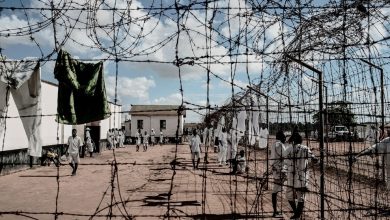Corruption as an elephant
A story is told of two men who went into a museum way back. In the museum, the men were able to see some archaic artefacts. They saw historic relics and pictures of prehistoric life.
In one of the rooms within the museum was an elephant. But our men did not see the elephant in the room. Of course, one of the men touched the tasks and felt that the object was very hard. His colleague touched the ears, and felt its softness.
None of them saw the elephant in the room.
Corruption, at the moment is the elephant in the room. Although this elephant is in plain view, we can’t see it. Or else, we have a feel of its parts.
It is an open secret that corruption has become a part of our lives. We know of police officers who let free errant road users when they oil their palms. We have heard of health workers who call for kickbacks to give patients assistance. The list could go on and on, immigration workers issuing passports to undeserving people just because they dished out some money; religious leaders conducting funeral services for people who don’t deserve.
Corruption has had its own euphemisms. The mbuzi imadya pomwe ayimangilira—the goat grazes where it is tethered—notion seems to be the drive for our daily lives.
Not long ago, news came in of Chapananga Bridge in Chikwawa that was washed away just a year after construction. If you look at the bottom of it all, it is most likely corruption was involved at all levels. It is probable corruption must have been involved in the selection of a contractor; we can’t rule out that corruption must have been involved in coming up with the environment impact assessment of the construction. Corruption, when it is deeply ingrained, results in a rot in the soul of the nation.
It is a given fact that a good number of the former ruling Democratic Progressive Party (DPP) executive members have been answering charges that also include corruption. The extent to which corrupt practices were conducted in those high places is beyond the power to fathom.
This is the very kind of corruption that also rocked the United Democratic Front (UDF) rule, where some ministers and top government officials ended up in the cooler for their sins. As a matter of fact, then President Bakili Muluzi is still answering corruption charges in the courts.
The fight against the corruption can’t be won with mere talk. The elephant must be dragged out of the room. If the elephantine corruption can’t be dragged out of the room, let us tear it in pieces.
The battle against corruption cannot be won if there are sacred cows in the system. It is tempting that when you are ruling, you hear no evil, see no evil and say no evil about corruption.
It is an open secret that the system can note corrupt elements, but because some people are taken to be untouchable, they are left scot-free. This is the mere reason that when there are changes in the ruling class, a rot is exposed.
The unfortunate thing about this scenario is that evidence is difficult to come by since the trails will have been cleared. It becomes difficult to trace the paperwork because the corrupt elements have erased everything.
It may appear simple but why should we today have some government ministries, departments and agencies using personal e-mail addresses instead of the official .gov.mw domain?
This means that the government officials are using personal mails for official business. This utterly means when they are no longer within the civil service, all the communications go with them.
The hope is that we all need to change our minds and see corruption in its entirety, as a colossal elephant. Not a small, hard and white trunk.



One Comment